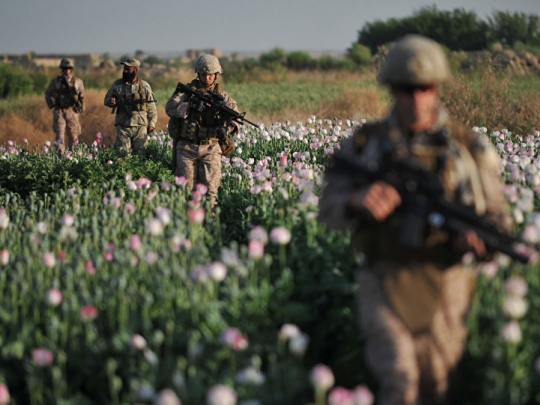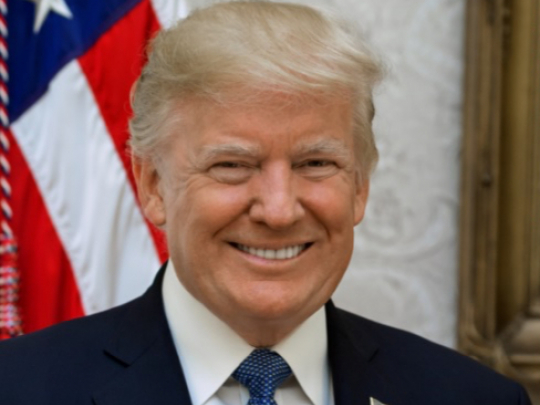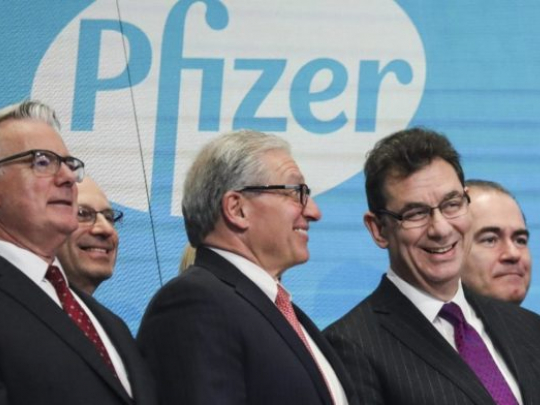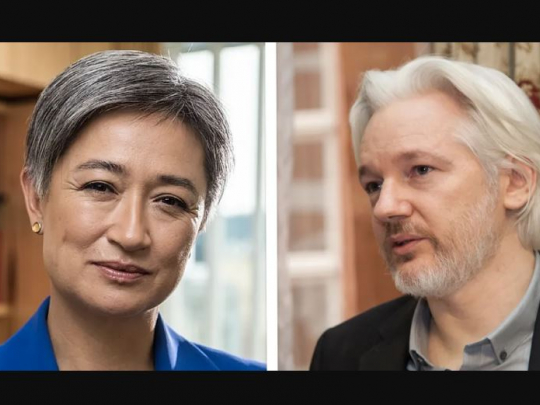'Graveyard of Empires': America’s Endless War in Afghanistan (Complete Analysis)

US Soldiers continue to fight and die in Afghanistan and civilians continue to be slaughtered or displaced, despite the fact that 92% of Afghans have never heard of the September 11 tragedy.
Less than one month after the deadly September 11, 2001, terror attacks that killed just under 3,000 American civilians, the United States invaded Afghanistan on October 7 under the guise of hunting down the terrorists responsible for the attacks, including Osama bin Laden.
Years after the al-Qaeda ringleader was killed by a team of Navy SEALS in Pakistani territory, the United States remains embroiled in the simmering conflict, which threatens to boil over again, a war without an endgame.
A recent public opinion poll suggests that it may also be a war on a people who don’t know why they were invaded in the first place, with 92% of Afghani respondents claiming they had never heard of the World Trade Center.
There have been 2,326 US military deaths in Afghanistan since the conflict began 15 years ago, in addition to 1,173 US civilian contractor deaths, with over 2/3 of these fatalities occurring since President Barack Obama assumed office in 2009, on a promise to scale back the conflict.
The situation has been more egregious for Afghanistan’s civilian population, with over 91,000 deaths traced directly to the conflict and an estimated 360,000 additional deaths traced to causes indirectly related to the war, including dislocation of civilian populations, destruction of social services, and devastation of the country’s infrastructure.

The heavy price in lives and the social infrastructure carries on to this day, but with much less reporting than during the Bush administration. A simple reading of current affairs will reveal that the popular focus has shifted to the presidential election season and celebrity stories.
On Monday, Loud & Clear’s Brian Becker sat down with Col. Lawrence Wilkerson, who served as Secretary of State Colin Powell’s chief of staff under the Bush administration, along with antiwar activists Kathy Kelly and Dilip Hiro to ask why the fighting rages to this day.
Did you anticipate that the Afghanistan War would still be waged 15 years later?
"I would have to say that yes there were some of us who saw Afghanistan as the graveyard of empires, some of us who were students of history," said Col. Wilkerson. "The US got stuck in that graveyard, or they called it a quagmire, and it all comes back to the great geopolitical game played out by the British and other empires for many years."
Was the war necessary to combat terrorism?
Colonel Wilkerson said that, whether or not war was justified on strategic merit alone, Americans were clamoring for violence after the World Trade Center buildings were destroyed during the 9/11 tragedy. Even a less militaristic US leader, he suggested, such as an Al Gore, would have found himself embroiled in a conflict in Afghanistan simply to assure people that he was doing something to keep the US safe.
However, he opined that Gore would have likely carried out a war in a different way, keeping the effort limited to perhaps a few months. Many Americans believed, he said, that "we would go to Afghanistan for a few months, knock out al-Qaeda the best we could, and send a clear warning to the country’s ruling body, the Taliban, that if they let al-Qaeda back then we’ll attack again."
Can the war be explained when 92% of Afghans never heard of the World Trade Center?
"I suppose some of the people suffering the most are those who become homeless and displaced, especially the children — who should never be held accountable for governance," said peace activist Kathy Kelly. "The UN is reporting 117,976 families have had to flee their homes and there are so many different fighting warlords that people aren’t sure which side is which."
She explained that, for Afghans, one day the roads to their houses are blocked, warlords creep in, and they are forced to head to squalid refugee camps where they suffer the harshest elements during the winter months with no protection.
"Hunger is really terrible in Afghanistan, and it isn’t just the displaced people but also ordinary civilians who have a hard time finding resources to cover rent and food at the same time that the health and education systems have collapsed," said Kelly. "The economy has tilted so heavily to funding warlords and maintaining the opium trade that Afghanistan has become a miserable place to live."
Did the United States gain any influence in Afghanistan due to the war?
"No," responded Dilip Hiro. "When the new President Ghani came into office, he said that we [Afghanistan] have five circles of friends, starting with the Islamic world, then China, and the US and Europe came third and fourth."
Hiro explained that China and Afghanistan share a long history tracing back to being wedged between the Russian monarchy and the governors of British India in the 19th century, and that both of the neighboring countries have long been caught in a struggle against Western imperialism.
He suggested that a geopolitical view motivating the US intervention in Afghanistan, beyond a several-month anti-terror campaign, may have been a desire to have a permanent base in the country to constrain the ambitions of China and Iran, but that endeavor failed after Chinese companies built roads and bolstered social services in the country, winning the favor of Afghans.
What is the driving force behind this endless war besides anti-terrorism?
Colonel Wilkerson argued that the ongoing conflict is largely the design of the US military-industrial economy, along with foreign and military policymakers feeding personal agendas, ambitions, and pocketbooks at the expense of Americans.
"I don’t want to pay another American dollar to Lockheed Martin, Boeing, Northrop, or McKesson or any of those filthy defense contractors," declared Colonel Wilkerson.
"Look at our two choices for President – Donald Trump and Hillary Clinton," he said, "There is not an iota worth of difference between them, except that Trump is incoherent and Clinton, unfortunately, is very coherent about the fact that she would continue this playbook on foreign policy that we have carried out for the past thirty years that is extremely expensive and extremely dangerous. It bleeds our treasury and it bleeds our people while less than 1% of our population serves in the military, bleeding and dying."
- Source : Sputnik News















